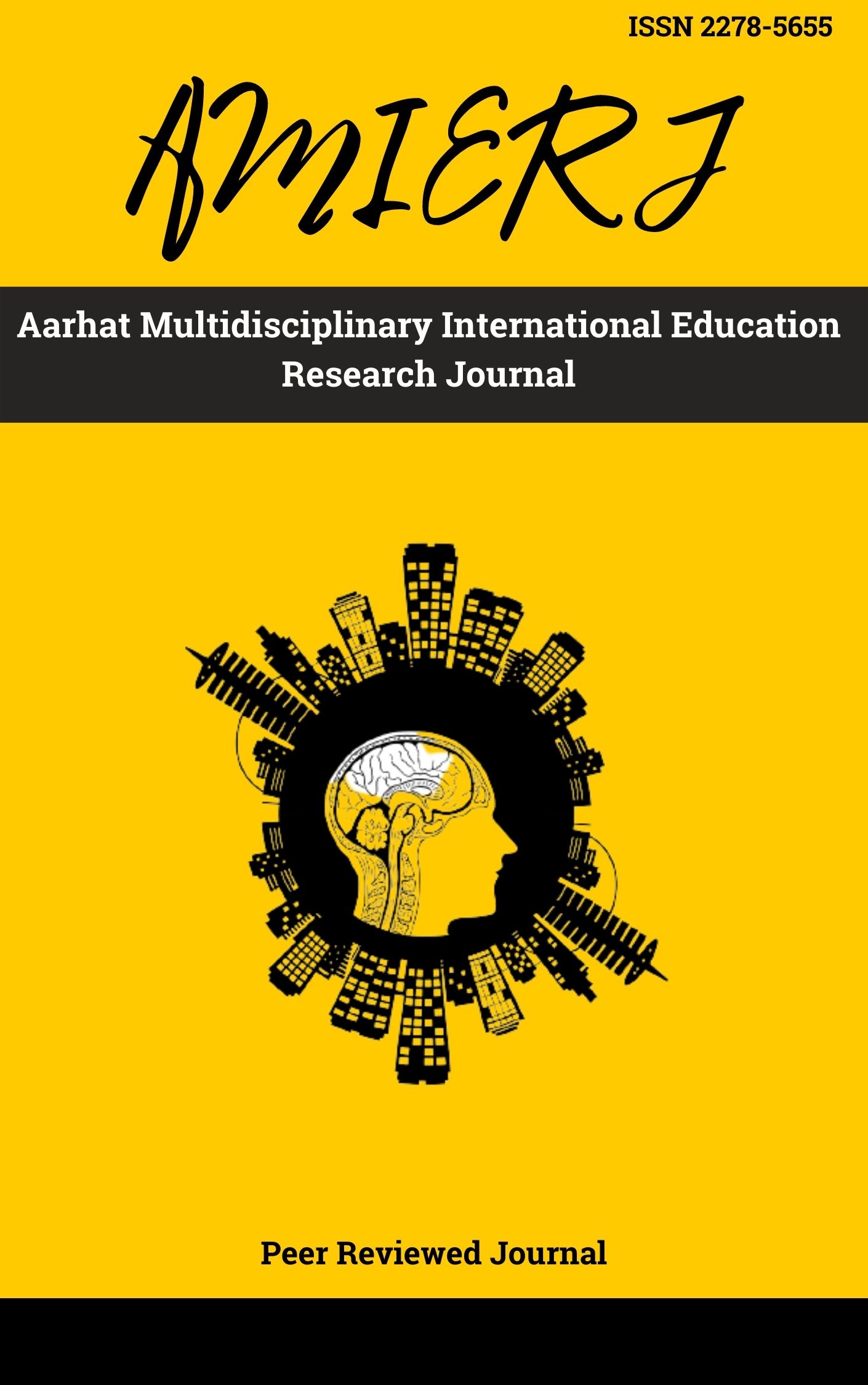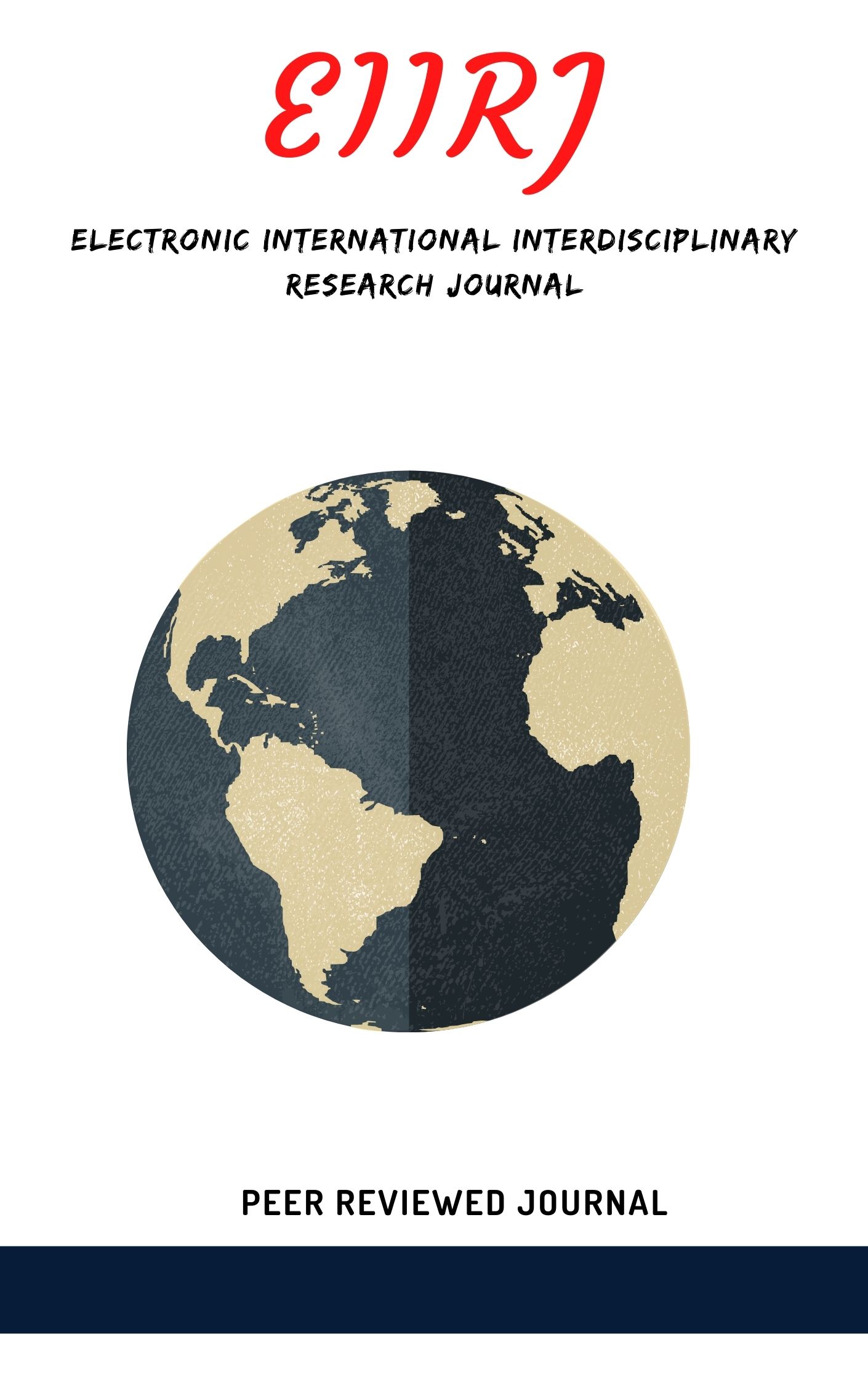Recently Published Articles
Original Research Article
|
Feb. 28, 2026
111 Downloads
CYBER INTELLIGENCE AIDS A NEW LAYER OF DEFENSE
Dr. Divya Premchandran
DOI : 10.5281/amierj.18608144
Abstract
Certificate
Cybercrimes have relatively increased in recent years and it is fast evolving using artificial intelligence playing a key role in this exponential growth. The impact of AI on cybersecurity is having two folds: One hand Cyber criminals are using AI to conduct more sophisticated cyber-attacks. On the other hand, it is helping to build a strong cyber defense mechanism. Enabling predicting threats from possible attackers with greater speed and precision than ever before. Artificial Intelligence enables cyber criminals and hackers to exploit vulnerabilities more effectively to avoid detection, execute more sophisticated attacks and scale their operations. Artificial Intelligence in social engineering had made a significant increase in psychological manipulation and deception to obtain sensitive information or assets from their targets. Even though using AI driven cyber threats has increased, AI still plays a crucial role for improving cyber security significantly. Advanced machine learning powers for threat hunting and AI technologies can help to detect and respond to threats with greater accuracy and speed than traditional measures. In this paper given a brief overview on various cyber intelligence aids where AI is integrated for threat intelligence using machine learning to identify and predict malicious threats. This shifts the network from security posture from reactive to preemptive.
Original Research Article
|
Feb. 28, 2026
79 Downloads
ACCELERATE SUSTAINABILITY WITH AI: EMBRACING INNOVATION FOR A BETTER WORLD
Asst. Prof. Pranjal Potdar
DOI : 10.5281/amierj.18608378
Abstract
Certificate
Artificial intelligence (AI) is rapidly becoming a game-changing tool for tackling global environmental issues. The purpose of this research is to explore how Artificial Intelligence can be applied to drive advance sustainability enterprise across diverse sectors. For instance, numerous associations are formerly tapping into AI technologies to enhance energy effectiveness. By incorporating AI into sustainability systems and processes, associations can optimize resource application, reduce waste, and save energy and capitalist. An illustration of this is smart grids, where AI-powered algorithms can play a transformative part in revolutionizing energy operation. The methodologies for accelerating sustainability with AI involve relating and assaying sustainability challenges, developing AI results, enforcing AI results, monitoring and assessing issues, conforming and perfecting. AI is reshaping sustainability attempts by allowing associations to minimize operations, reduce waste and accelerate the adoption of low-carbon technologies. By integrating AI into sustainability initiatives, companies can improve efficiency and foster new business models that align environmental responsibility with economic growth. An association between AI and sustainability is not only perfecting effectiveness but also creating new openings for invention. From energy operation to agriculture and climate monitoring, AI is proving to be an important tool in the fight against environmental challenges. As we look to the future, it is clear that AI will play a vital part in creating a more sustainable and adaptable world.
Original Research Article
|
Feb. 28, 2026
87 Downloads
DESIGNING AN AI FRAMEWORK TO NURTURE PROSOCIAL BEHAVIOUR AND REDUCE ONLINE TOXICITY
Ms. Pooja Banerjee & Neeraj Kumar
DOI : 10.5281/amierj.18608182
Abstract
Certificate
The growing tendency of internet aggression, cyberbullying, and toxic communication has generated the necessity of smart technology to promote desirable digital behaviour. Although psychologists have gone a long way in creating and testing digital interventions that enhance empathy, cooperation, and positive interaction, they have not yet been applied in real technological systems. The current research suggests an Artificial Intelligence (AI) model that makes psychological understanding available in scalable and data-driven digital solutions to curb online toxicity and encourage prosocial behaviour in adolescents and young adults. The suggested framework is designed based on three mutually reinforcing dimensions, namely, proactive, interactive, and reactive interventions, each of which is accommodated by the properties of user interaction timing and nature. Prevention-based solutions will narrow down the adverse interactions on the internet by using educative prompts, emotional awareness devices, and the digital literacy module provided through AI capabilities. The interactive interventions utilise the real-time monitoring and adaptive feedback tool through natural language processing (NLP) and sentiment analysis in order to promote self-regulation and empathy in online interactions. Reactive intervention is premised on Reactive post-event reflection and behavioural strengthening, which involve the provision of Restorative feedback, online counselling referral mechanisms as well as peer-support. The combination of these layers will result in a complete ecosystem that is toxic in the prevention of online behaviour and responsive. The theoretical framework revolves around the methodological integration of the supervised and reinforcement models of learning with the socio-behavioural data sets when distinguishing linguistic and affective signals of aggression, empathy and cooperation. The lessons inform the dynamic provision of the interventions and consequently contextual lessons with the use of the ethical data. The study also embraces the principles of participatory design because the educators, psychologists and adolescent users are invited in system verification to enhance usability and credibility. There are preliminary signs that AI-inspired interventions grounded on the psychological theory and balanced with interdisciplinary cooperation can result in a drastic decrease in cases of verbal aggression and an increase in the number of cases of empathy and meaningful discussions in the virtual environment. The paper is also an extension of the existing discussions in the field of AI ethics, digital well-being and social technology because it provides a path towards transforming AI into a means of behavioural empowerment and digital citizenship rather than a surveillance tool. It suggests cooperation among the industries to transform technological innovation not only to be safer, but also caring, empathetic, and inclusive in the digital world. The proposed AI application can be duplicated as an evidence-based strategy of the promoting of the positive internet communication within the educational, social, and community platforms.
Original Research Article
|
Feb. 28, 2026
65 Downloads
EXPLORING THE IMPACT OF WORK VALUES ON EXEMPLARY LEADERSHIP IN SENIOR SECONDARY SCHOOLS
Dr. Japnith Kaur , Prof. Ranjit Kaur, Dr. Indu Bala & Dr. Shamshir Singh Dhillon
DOI : 10.5281/erj.18713118
Abstract
Certificate
Present research is conducted with the objective of measuring the impact of work values of school of teachers of senior secondary level on Leadership Behavior (LB). For this work value is considered as independent variable and leadership behaviour is considered as dependent variable. Also work value is divided into 4 sub independent variables: Professionalism and Work Environment (PWE), Collaboration and Teamwork (CT), Personal and Professional Growth (PPG), Work Engagement and Motivation (WEM). Further a tool is developed on which data is collected from the respondents. For development of tool, pilot testing is done 100 sample set on 40 items which was initially narrowed to 23 after statistical analysis. Methods including principal component analysis, varimax rotation with kaiser normalization, explained percentage of variance, and Cronbach's alpha were used to determine the tool's validity and reliability. Finally, regression analysis was used on a larger sample size of 528 to look at how factors including professionalism and work environment, cooperation and collaboration, personal and professional development, and work engagement and motivation affected leadership behavior. Final findings of the research show that, work values have significant impact on leadership behavior.
Original Research Article
|
Feb. 28, 2026
88 Downloads
INTEGRATING ARTIFICIAL INTELLIGENCE WITH EMERGING TECHNOLOGIES FOR SCIENTIFIC AND TECHNOLOGICAL PROGRESS: A MUMBAI-BASED STUDY
Rajeshree Mundhe
DOI : 10.5281/amierj.18608094
Abstract
Certificate
The rapid advancement of Artificial Intelligence (AI) in conjunction with emerging technologies has ushered in a transformative phase in scientific and technological development. In the Age of AI, the integration of intelligent systems with technologies such as Internet of Things (IoT), Big Data analytics, cloud computing, blockchain, and edge computing has significantly reshaped computational paradigms and digital infrastructures. This study examines how the integration of AI with emerging technologies contributes to scientific and technological progress from a Computer Science and Information Technology (CS/IT) perspective, with Mumbai serving as the study area due to its prominence as a technological and innovation hub. The research adopts a system-oriented and analytical approach, focusing on AI-driven architectures, data-centric models, and intelligent computational frameworks deployed across technology-intensive environments in Mumbai. Key dimensions analyzed include AI-enabled data processing efficiency, algorithmic intelligence, system scalability, automation capabilities, and decision-support mechanisms. The study explores how machine learning models, deep learning architectures, and intelligent analytics enhance system performance when combined with emerging technologies. Emphasis is placed on real-world IT applications such as smart systems, intelligent service platforms, scientific data modeling, and technology-driven research environments.
Findings indicate that AI integration significantly improves computational accuracy, processing speed, and adaptive intelligence of emerging technology systems. The study highlights the role of explainable AI, cloud-based AI services, and hybrid intelligent frameworks in advancing scientific research and technological innovation. Additionally, challenges related to data security, system interoperability, and ethical AI deployment are identified, offering insights for future system design and policy formulation. The study contributes to CS/IT literature by presenting a structured framework for AI–emerging technology integration and by providing empirical and conceptual insights relevant to researchers, system architects, and technology policymakers. The outcomes underscore the potential of AI-driven emerging technologies to accelerate scientific discovery and sustainable technological growth in urban innovation ecosystems like Mumbai.
Original Research Article
|
Feb. 28, 2026
92 Downloads
AI-POWERED ANALYSIS OF LARGE DATASETS IN ASTRONOMY: A MACHINE LEARNING AND DEEP LEARNING FRAMEWORK
Dr. Praseena Biju & Dr. P. Sanoj Kumar
DOI : 10.5281/amierj.18608020
Abstract
Certificate
AI-driven analytical frameworks significantly enhance the precision, speed, and scalability of astronomical research by enabling automated interpretation of large and complex datasets. Deep learning models, particularly convolutional neural networks, can extract high-dimensional features from images and spectra that traditional methods often overlook. Machine learning algorithms further support clustering, anomaly detection, and predictive modelling, helping astronomers identify hidden structures and rare cosmic events. The integration of AI reduces manual effort, minimizes error rates, and accelerates data-to-discovery timelines. Moreover, AI-based systems support real-time monitoring and classification of dynamic celestial phenomena. These capabilities strengthen observational accuracy and promote timely scientific insights. The proposed framework demonstrates how AI can transform astronomical workflows. It provides a unified approach for data processing, model training, validation, and visualization. This contributes to establishing a scalable and efficient foundation for next-generation astronomical research.
Modern astronomy relies heavily on the analysis of massive, complex, and continuously growing datasets produced by telescopes, sky surveys, and space missions. Traditional analytical techniques often fail to handle the scale, velocity, and heterogeneity of these data streams. Artificial Intelligence (AI), particularly machine learning and deep learning models, provides an efficient, scalable, and automated solution for processing astronomical data with enhanced accuracy and speed. This paper presents a framework that integrates convolutional neural networks, clustering algorithms, anomaly detection systems, and neural sequence models to classify celestial objects, identify rare astronomical phenomena, and reveal hidden structures in the universe. The study highlights the transformative impact of AI on data-driven astronomy and proposes an end-to-end architecture for large-scale astronomical data analysis.
Modern astronomical surveys such as LSST, Gaia, Pan-STARRS, and SDSS generate petabyte-scale datasets that exceed the capability of traditional statistical and manual analysis. Artificial Intelligence (AI), specifically machine learning (ML) and deep learning (DL), offers scalable, automated, and highly efficient mechanisms to handle the computational and analytical challenges associated with large astronomical data streams. This study investigates the implementation of convolutional neural networks (CNNs), clustering algorithms, and anomaly-detection models for automated classification of celestial objects, rare-event detection, pattern discovery, and noise reduction in observational datasets. Experimental evaluations on benchmark astronomical datasets demonstrate that AI-based models significantly improve classification accuracy (up to 97%), reduce processing time by 45–70%, and enable real-time or near–real-time astronomical event monitoring. The findings highlight the transformative role of AI-driven analytical models in improving observational accuracy, accelerating the discovery of transient phenomena, and supporting next-generation astronomical missions.
Original Research Article
|
Feb. 28, 2026
91 Downloads
SMART NET ASSET VALUE (NAV) PREDICTION USING MACHINE LEARNING
Swati kemkar
DOI : 10.5281/amierj.18608347
Abstract
Certificate
Net Asset Value (NAV) serves as the price at which investors buy or sell units of mutual funds. It is computed at the end of each business day using closing prices of securities held by the fund. NAV is a benchmark for tracking a fund’s performance and is updated daily for open-end funds. This article presents NAV prediction using XG Boost machine learning Algorithm. The proposed model suggests time series prediction model. Lower MAE / RMSE shows predictions are numerically close. Very low MAPE (~0.55%) indicates strong relative accuracy. It is quite effective, with forecasted values only marginally different from actual NAV. For daily NAV forecasting, such low errors are often considered very acceptable. Very low MAPE (~0.55%) indicates strong relative accuracy.




